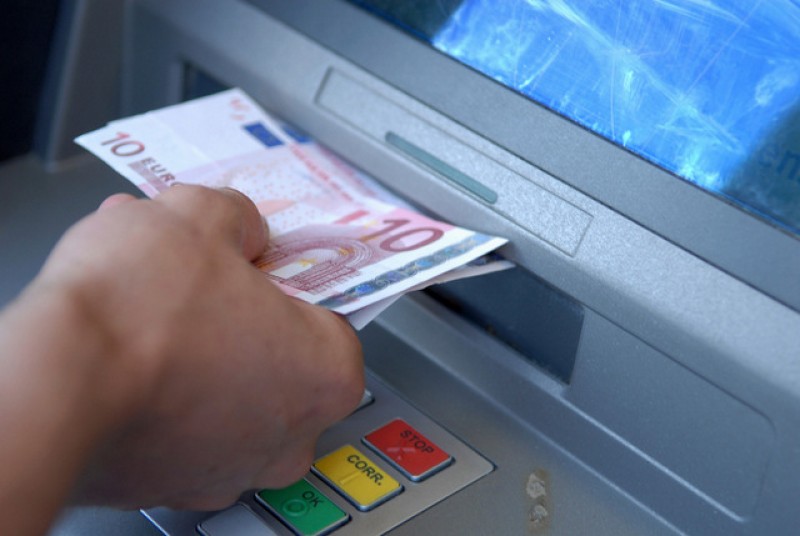
To be listed on the haciendadelalamo TODAY MAP please call +34 968 018 268.
Outrage among customers as Spanish banks increase bank charges
BBVA, Santander and CaixaBank charge customers for withdrawals at manned cash desks
There has been considerable concern among members of the public in Spain recently (and in the community of foreign residents!) over increases in charges which are being introduced by various of the country’s banks, among them penalties of as much as 3.50 euros for customers making cash withdrawals at the till.
Among the banks incurring the wrath of customers are Santander, BBVA and CaixaBank, all of which are implementing new or increased charges as they search for alternative ways to generate income and profit in the face of continuing low interest rates. In more “normal” circumstances the banks create a profit margin for themselves by means of lending at higher rates than those at which they borrow, but with that margin now at minimal levels they have been forced to experiment with other tactics which are proving unpopular to say the least.
The latest to jump on the bandwagon this month is BBVA, which has announced that as of 1st January customers withdrawing money from their current accounts via manned cash desks will be charged 2 euros for each transaction: the charge can be avoided either by using automatic cash points belonging to the same financial group or in the case of the amount withdrawn exceeding 2,000 euros, but many see it as setting a dangerous and undesirable precedent.
This follows the examples set in April by Banco Santander, which has been charging a minimum of 3.50 euros or 4.5 per cent on each amount withdrawn, and CaixaBank, whose charges are rather lower at 2 euros and are applied only when the transaction could just as easily have taken place at an automatic cash till or online, and when the customer has already used the manned desk 5 times in any given month. Although the three banks differ in their approaches to charging for cash withdrawals, this trend would seem to open the door for others to follow suit.
But while the banks themselves plead financial necessity, the OCU consumer rights organization is unconvinced and has requested that the Banco de España make its opinion known. The OCU maintains that the cash desk service is covered by account maintenance commissions and that the imposition of charges specifically affects elderly customers and others who might be considered “vulnerable” on account of sensory, cognitive or mobility problems which make the use of ATMs less easy.
“No commissions” status more difficult for customers to achieve Meanwhile, another strategy being adopted by banks as they respond to their current difficulties is to establish more demanding conditions for customers to enjoy “no commissions” status. The BBVA’s new “Adiós Comisiones” scheme establishes that the minimum monthly salary deposit order is raised from 600 to 800 euros for anyone over the age of 29 and that it is mandatory either for at least five bills to be paid from the account or at
least 7 credit card purchases to be made: debit card transactions are no longer considered valid.
In addition, the same bank is altering its standard tariff on bank transfers made from a branch office (although they remain free of charge if carried out online) and an annual commission of 35 euros is being charged for the maintenance of debit cards if the specified conditions are not met.
Similarly, Banco Santander has announced that as of 5th November all of its accounts are to be re-named “Santander One” (eliminating Santander 1, 2, 3 and others) and that their requirements for customers to be exempt from conditions are also being made stricter. Not only must customers have direct debit orders for their salaries or pensions and at least three bills and use their cards, from now on they must also either contract a financial services or savings product or take out home or car insurance with the bank. Those who fail to meet these extra conditions will be charged 10 euros per month for account maintenance or 20 euros if their account is dormant.
Meanwhile, in October CaixaBank finally brought in a series of new conditions which had been postponed in April of this year due to the pandemic. In their case customers with only loose ties to the bank (in terms of financial services contracted) are now charged 60 euros a quarter – or 240 euros a year – and in order to avoid this the requirements include direct salary payment transfers, a balance of at least 20,000 euros in investment or savings accounts, at least three bills paid by standing order and three or more credit card payments per quarter.
Since 23rd February Bankia have been charging account holders 14 euros per month plus an annual fee of 28 euros unless a monthly salary payment of at least 700 euros is made into their account, as well as levying monthly fees of 6 euros plus an annual 14-euro charge if debit cards are not used, and Banco Sabadell has also introduced a charge of 60 euros per year for those with insufficient payments coming in and no significant other services.
In short, it seems that for the foreseeable future, unless the Banco de España steps in and puts a halt to these additional charges, the ongoing low interest rates may well benefit those members of the public who are taking out mortgage loans, but far more will suffer the reaction of the banks as they seek to make their money in other ways!

































